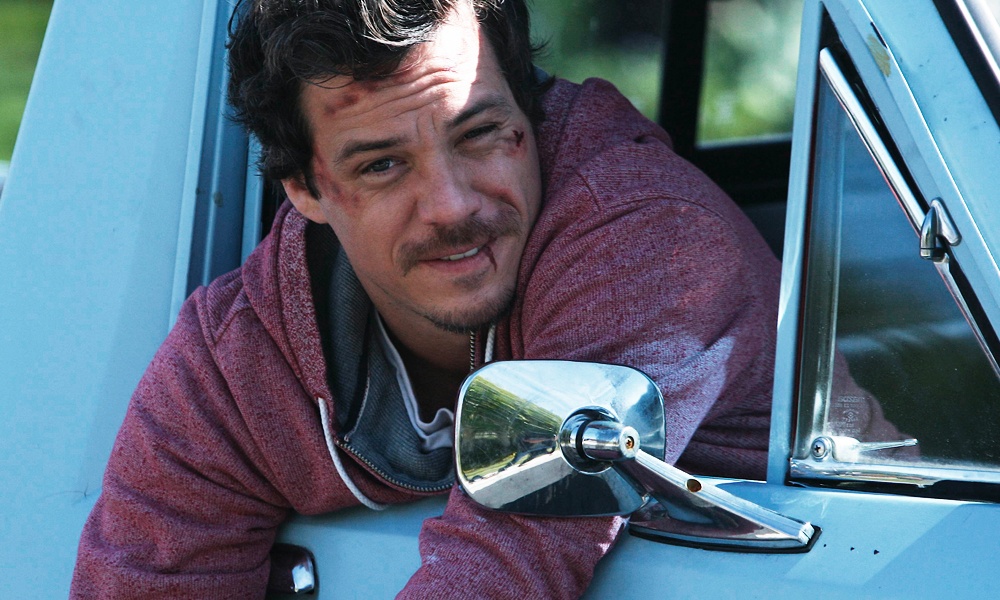Not every show that gets made is good. That’s understandable. There are a lot of hack writers willing to team up with money grubbing studios and some bad TV is destined to come from that. Mudding up art with greed is always bad.
What’s worse is when every member of the cast and crew of a show work to near death, only to have that show cut short. It’s a disservice to both the creators and its audience, and the fight for a resurrection can go on for years, even if it is often futile.
These are the shows we loved that only got one season. Where we could find links, we provided them, though they come with no guarantees. They were cancelled once. They could easily be cancelled again.

Firefly
Of all the one season shows, the first two on our list are easily the most commonly referenced. But we’d say Firefly is most people’s number one TV martyr.
The basic plot of the show was, after some kind of environmental cataclysm on Earth, humanity successfully populated the stars. But soon after, planets started to take on the same kinds of segregation and economic stratification that cities experienced. One planet might be a rich community full of big gowns and cocaine parties, while another could be a feudalistic planet with peasants pulled straight out of the Dark Ages, only with Joss Whedon dialogue. Firefly took that dynamic and turned it into a sci-fi space western, with a cowboy-esque group of space smugglers flying around doing crimes
From what we’ve seen, the show was cancelled because of some serious mishandling on Fox’s part. The network tried to change ideas central to Whedon’s image, aired it on Friday nights (a night notorious for cancellations on Fox), and completely messed up the order of the episodes. The low ratings associated with the first season can be blamed on Fox, as their promos were, frankly, shit at capturing the tone of the show. In fact, this ad makes it out to seem like you’re getting the modern Star Trek movies with vests and more sex, when in reality, space is treated a lot more like the American Frontier, with a lot of the same language. Put all that together and it’s like Fox didn’t even want Firefly.
We did get some good out of the whole debacle though. Streaming services let you watch in the correct order, so you get the whole story, and the follow up movie, Serenity, closed a lot of arcs opened by the show. Whether we want to admit it or not, Firefly got the solid ending it deserved. Netflix | Crackle
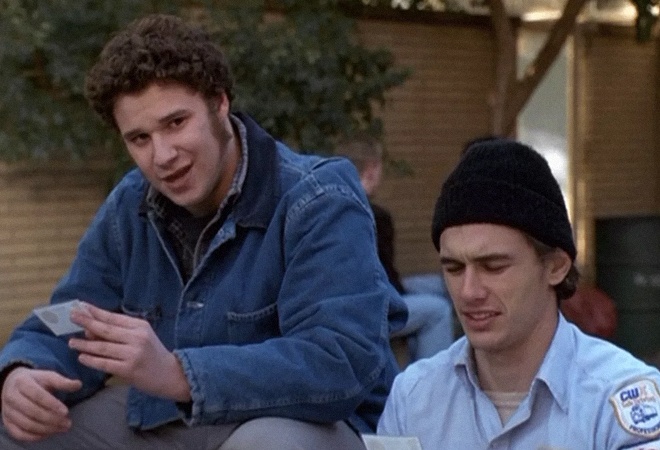
Freaks and Geeks
Freaks and Geeks has to be the second most popular show martyr. We get it too. It’s hard enough to make a movie that captures the true atmosphere of high school, but the added pressure of sustaining it through an entire series approaches impossibility. But they did it, especially since, if you watched the show when it originally aired, you would have fit in with these people anyway.
The younger guys played D&D constantly, but hit an interesting and rare note of 99% owning it. Being comfortable in your own skin’s not a concept that the genre deals with well or often. Usually it’s about getting in with the popular kids or hooking up with the hottest girl or guy. The older crew was a little more about social acceptance, but the emphasis was always on liking each other, not on being liked by the school at large. There’s an earnestness to the show that strongly indicates the people making know exactly how their audience feels.
This was also the show that helped build, if not built, the careers of a ton of actors working today. Seth Rogen, Linda Cardellini, Martin Starr, Samm Levine, Busy Philipps, Jason Segel, and James Franco are most of the main characters, and if you don’t recognize the names, you definitely recognize the faces. There’s also the fact that if you watched this show for the first time when you were in high school, you’re probably nursing a high school level crush on Linda Cardellini, and we’re here to tell you, you’re not alone. Netflix
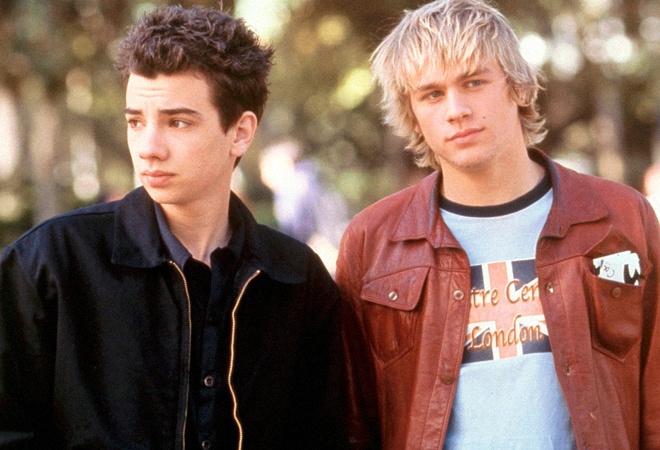
Undeclared
If other shows get the closure of movie sequels, like Serenity or our as-yet-undiscussed Police Squad!, Freaks and Geeks got its closure with Undeclared. Spiritually, they’re pretty much the same. Both were produced by Judd Apatow. Both capture the desperation of the tumultuous years of change. And both operate with the earnestness we were talking about before. Freaks and Geeks became more of an icon, since we have a sweet spot for the high school genre, but Undeclared is a worth entry in the college genre.
We’ve all had difficulty with transitioning to whatever we did for secondary education or the work force or a new apartment. Undeclared speaks more to the transition from your teenage years to adult responsibilities. Or what passes for adult responsibilities. Even, if you want to stoop, “adulting.”
Jay Baruchel hasn’t changed and Jason Segel’s involvement, though limited, is still one of the funnier parts. There’s also the Charlie Hunnam Surprise waiting for you. The Charlie Hunnam Surprise, contrary to what it sounds like, is not when you’re both impressed and upset when you find your girlfriend in bed with Charlie Hunnam. Instead, it’s when you realize halfway through the pilot that yes, Lloyd is Charlie Hunnam and no, Charlie Hunnam has not always been jacked and cool.
For the record, the Charlie Hunnam Surprise v2 is when you realize you can’t talk about Charlie Hunnam without saying his full name, Charlie Hunnam. We’ve now had both. YouTube
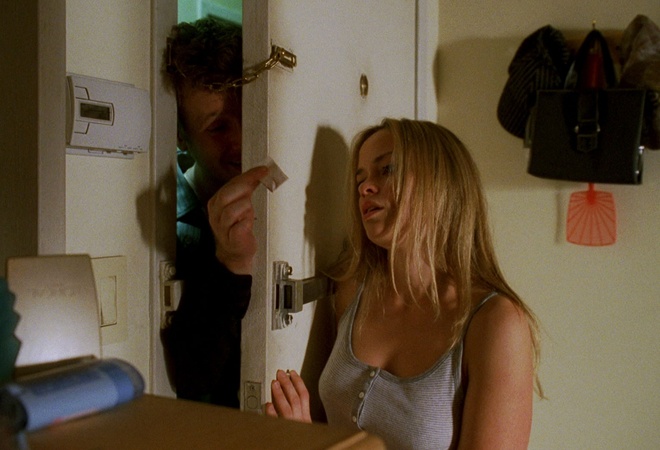
The Black Donnellys
While we’ve never worked in television, we at least understand the realities of making a show. It’s why we try not to get bummed out when one of our favorite shows gets cancelled. But if we had to pick a show to get angry about, it’s The Black Donnellys. Mostly because it did everything right and still couldn’t make it. We blame the network, though not for actively sabotaging the show, like Fox did with Firefly. More that this show was far more suited for HBO or post-Breaking Bad AMC.
The level of violence in this show was staggering, especially for a 2007 prime time slot on NBC. One of the episodes has two of the Donnelly brothers smashing the legs of a murder victim to better fit in an oil drum so they can dump him in the river. Blood spurts out with each swing of the hammer and the sickening crunch of the impact was evidently more than enough to send some viewers elsewhere for their entertainment. We see this more as an endorsement, not because we’re super violent people, but because the violence is treated with actual weight and consequence at every stage. You can actually see the brothers reluctance to descend into violence, but their recognition that it’s inevitable.
The Black Donnellys also unequivocally nails the New York Irish-American neighborhood atmosphere. One where you’re not necessarily in constant danger, and it’s possible to stay out of trouble, but organized crime is at least something you’re aware of. And everyone you interact with has a name that ends in -y or is a saint’s name. Bonus points for James and Thomas, since they’re both. If you want to double check that and you’re not of Irish heritage, go ask whatever Mick or O’ friend you have if they’re related to anyone named Jimmy, Tommy, Jacky (or Jackie), Kevin, Sean, Huey, Michael, or Patrick, then ask if anyone has an inexplicable nickname. The answer’s going to be yes and probably for more than one of those. Netflix | NBC
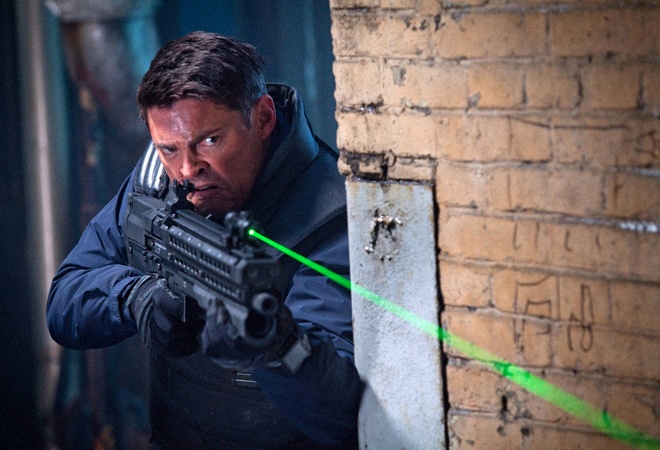
Almost Human
Karl Urban might be the luckiest nerd to ever have talent. He’s been in two of three Lord of the Rings movies, the Star Trek reboot, Doom (which we refuse to say anything bad about), and he’s entering the MCU in Thor: Ragnarok. And let’s not forget that he was a major reason Dredd was the amazingly fun gore fest of a comic book adaptation it turned out to be. That’s four major nerd film franchises and one adequate video game adaptation. He’s the perfect nerd ambassador, since people actually like looking at him too.
Knowing how good Urban is at his job, when he makes the jump to TV, people should pay attention. Unfortunately for Almost Human, not quite enough people did. The show was promising enough, with the skepticism toward futuristic technology forming a relatable base and the main characters—one human, one not—have an entertaining dynamic. The setting of 2048 was treated as a genuine attempt to imagine the year, not a far-flung cheesy romp through imagination world. And it was a detective show, which everyone always loves.
The upsetting thing is, Almost Human mirrors Firefly in a lot of ways. Both were on Fox, both consistently lost viewership as the season played out, and both were aired wildly out of order. Those last two are definitely related, since if people can’t follow a story, they generally stop trying. Imagine trying to read Lord of the Rings out of order or jumping between Marvel movies without paying attention to their release dates. You’re probably not going to stick around very long, writing both things off as jumbled messes of poor storytelling. At this point, we’re starting to think whoever’s setting air dates for Fox shows can’t count.
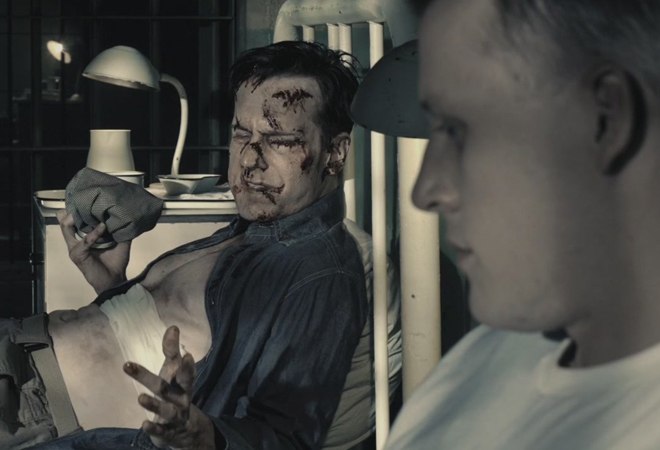
Alcatraz
Good conspiracy theory and alternate history movies and shows are an uncommon occurrence. We’re talking movies like the Indiana Jones trilogy, The Man in the High Castle, District 9, and National Treasure (which, incidentally, we can’t nail down public opinion on that one. As a society, do we like National Treasure?). There’s a lot of fun to be had in messing around with history, myth, and mixing the two, and it’s part of the reason we liked Alcatraz. As far as we know, the show invented the conspiracy theory about prisoner and guard disappearances. But, like most government cover ups, this one seems plausible enough for a prime time television drama and it’s not hard to suspend disbelief.
You get to find out about the prisoners and guards that disappeared in episodic flashbacks, but most of the action follows modern day investigators attempting to track victims down as they reappeared. The action has a Fringe/Lost vibe to it, thanks to its producer, J.J. Abrams. In today’s world of shared cinematic universes, it’s not hard to imagine a crossover event with characters from each show coming to help each other with a mutual mystery.
Being that this was a mystery show cancelled after one season, big answers aren’t readily available. Toward the end, it felt like the show was using its mysteries as the way it would get renewed, not its ratings. As it exists now, Alcatraz should be something you watch, then complete in your own mind.
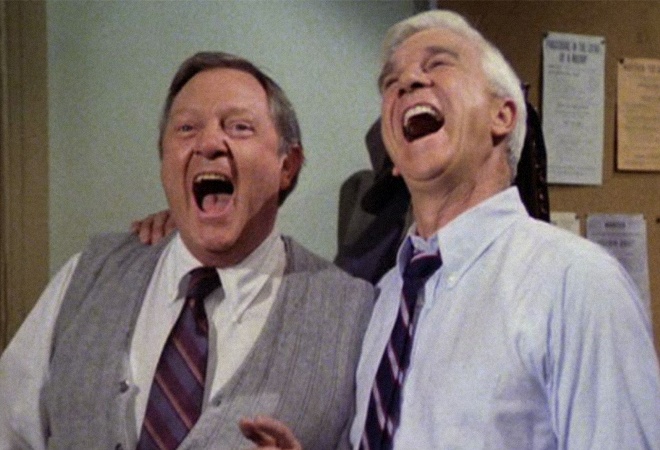
Police Squad!
Most of the shows on this list were cancelled because they were on the wrong network, were scheduled on nights no one watched TV, or couldn’t overcome the turmoil they experienced behind the scenes. None of that applies to Police Squad! though, as the main reason the show was cancelled was being too smart for its audience. As Matt Groening put it, “If Police Squad! had been made twenty years later, it would have been a smash.”
If you even get a chance to watch the show, you’ll see exactly what he means. The show’s completely off the wall and would be nearly impossible to follow for an audience that was coming off Happy Days. Police Squad! takes your whole brain to watch, as there are visual gags going on at the same time as “Who’s on First?” level dialogue. Not to put Happy Days down, as it’s still funny today, but there simply aren’t many similarities between the two sitcoms.
Even though we don’t have ten seasons of Police Squad! to delight us, we have the comfort of The Naked Gun: From the Files of Police Squad and its two sequels. The movies are nearly exactly the same tone as the show, if a little stretched out to make a feature length film. But not stretched out in a bad way. In a way that means we got much more Police Squad!

The Muppets
The Muppets is the most recent entry to this list and also the most surprising. As in, we didn’t know this show was cancelled until we started researching for this list. Although, it did explain why we were waiting for the second season for so long.
This new Muppets outing saw them running Miss Piggy’s late night talk show, and while we would have absolutely welcomed the return of their traditional variety show, this felt like an interesting and natural update. Each of the famous characters slid into a natural role in either production or performance and we were treated to new approaches to old dynamics. Kermit was the showrunner and Fozzie Bear was Piggy’s sidekick, which are the two most obvious roles for those guys. Beyond that, Scooter was stage manager, Fozzie, Gonzo, Rizzo, and Pépe were the main writers, and the Swedish Chef provided catering. Swedish Chef, by the way, is easily one of the funniest characters, as he does a great job of completely refuting the need for traditional language. Like when he tried to make popcorn and ended up making European kitchen techno.
With the shift to a new format, there was also a significant shift in tone. The show became more like The Office than Sesame Street. It was bit jarring at first, but was something much more in line with what the Muppets started as, and something the show’s creators wanted to recapture. The new show took a more adult look at what drives Kermit and Miss Piggy’s relationship. They break up, but Kermit clearly has a thing for pigs though, as his rebound is with his receptionist, who is also a pig. Fozzie gets himself a girlfriend, and on the drive to dinner with her parents, his conversation with the camera hits an edge the Muppets rarely approach. There’s also a great vinnette where the band takes a road trip to a gig with Kristin Chenoweth and their car ride shows why their an underutilized part of the Muppets.
A surprising benefit to the series format was how easily celebrity cameos fell in. In movies, cameos can be shoehorned or forced, but in the TV show, celebrities popping in and out fit their new style pretty well. ABC
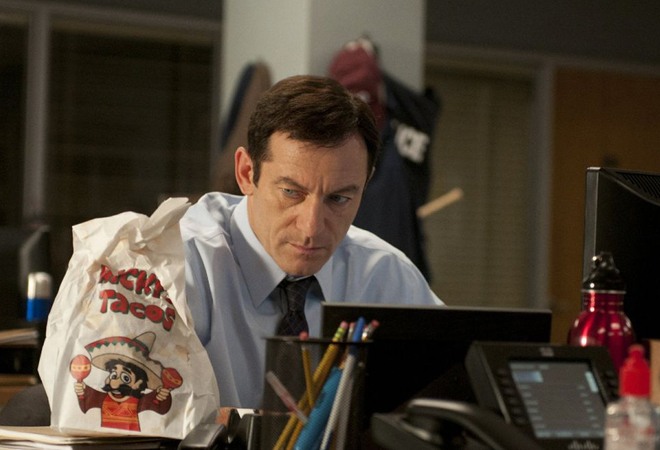
Awake
Jason Isaacs has an excellent mastery over subtlety. Some actors equate powerful emotion with powerful shouting and while that’s exactly what a situation needs sometimes, more often, good performances are hidden in facial expressions. Go back and watch his tenure as Lucius Malfoy in Harry Potter. Malfoy can be over the top sometimes, but what really sells the performance are the small sneers, squints, and whispered changes in how Isaacs’ delivers his lines. It’s why we think Awake could only really work with him. He’s one of the only actors who could pull of the nuance it would take to convey the show’s two different realities.
The premise is fairly simple in theory, though it’s wildly original. A detective and his family are in a car accident. From there, the detective’s reality splits. In one, his wife survives and the two of them must deal with losing a son. In the other, the wife dies and the detective becomes a single father. He can’t tell which is real and which is a dream, though he openly admits to his therapists that this isn’t a problem he’s exactly willing to fix. There are aspects of a procedural crime drama to the show, though the police work serves to advance the dual realities story than the other way around.
There is something of a big answer at the end of the series, though, like most other picks on this list, it definitely could have benefited from the answers a second or third season would have explored. But at least there’s closure to this one, instead of having an Alcatraz-like surprise non-ending. Netflix
![]()
Rubicon
So many of the shows on this list had trouble gathering and keeping viewers that we’re amazed people are even watching TV. If these are the shows that couldn’t maintain high ratings, how the hell can anyone expect to be successful? Sadly, Rubicon is another one of those shows. It started with the highest series premiere ratings a pre-The Walking Dead AMC ever had, then bled viewers each week.
Rubicon delved into corporate conspiracies, something far more relevant to the world we currently live in, and something that, if possible, people were even more aware of in 2010, just after the housing market crashed. The main character, Will Travers, works for an intelligence think tank and finds, in his own investigation into the death of his father-in-law, troubling connections between corporate America and the intelligence community. From that description alone, it’s easy to see just how powerful a show like Rubicon could be in modern America and it’s odd the show didn’t resonate with audiences.
The problem may have been with the plot and how long it took to build up. This is a series that needed plenty of time to reach its conclusion. But, if you’re going to be a show that deals with corporate conspiracy, espionage, and murder, you need to be closer to Bond than reality. The people still want to see some gunshots or fistfights.
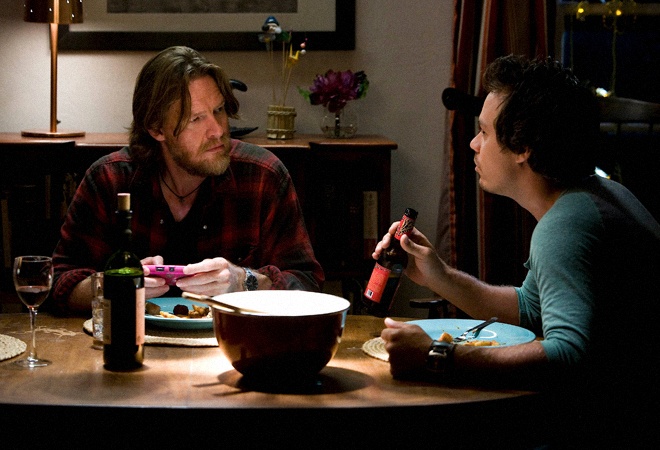
Terriers
Like other shows in similar situations, Terriers found most of its success post-cancellation thanks to its availability on Netflix. Because of this, there’s speculation that the show isn’t doomed to a single season. Hopefully that’s true, because in a world where Full House inexplicably comes back from the dead, it wouldn’t be right to leave Terriers buried.
It’s a story we’ve already told a half dozen times in this article alone. Ratings weren’t there to justify a second season, people felt advertising didn’t portray the show accurately, critics loved the show, and a core audience felt like something had been taken from them. These things happen, despite everyone on the show doing an excellent job.
If you feel like becoming part of that small but growing group of fans, you can still stream the show on Netflix. Like we said, that’s what a lot of people already did, quickly becoming fans of Hank Dolworth and Britt Pollack, the show’s two unlicensed, irresponsible private investigators. You’ll be brought in, then disappointed when you finish the season and are reminded there’s nothing to follow it up. Netflix


